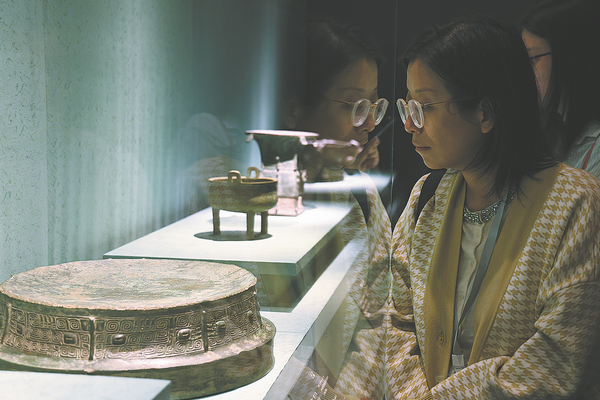

Exhibition delves into the very essence of his teachings and how they shaped a nation, Wang Kaihao reports.
Across the span of human history, many great thinkers have shone like bright stars, profoundly shaping civilization. Confucius is one of them. Throughout the millennia since his time around the 5th century BC, the school of thought he founded and the Confucianism that developed from it has continued to offer inspiration for people, not only in China.
A new exhibition at the Palace Museum in Beijing opened on the National Day holiday to demonstrate the lasting legacy of the sage through 380 cultural relics on loan from nearly 30 institutions from home and abroad. It will run for more than three months.
In the Meridian Gate Galleries, above the southern entry of the former Chinese imperial palace also known as the Forbidden City, When the Great Way Prevails: Special Exhibition of Confucian Culture launches a time travel spectacle resonating with ancient ritual and wisdom.
Through the objects on display, this exhibition aims to illustrate the historical context, core concepts, and far-reaching influence of Confucian culture.
"The agricultural civilization of China shaped the nation's cultural genes: order, stability, humility and peace as the core values," says Da Weijia, deputy director of department of objects and decorative arts of the Palace Museum, who is in charge of organizing the exhibition.
"From these, Confucianism developed, and continually influenced people's values, ways of thinking and behavioral norms, producing a distinctive Confucian culture," she says. "It still resonates with our modern life today."
Exhibited ceremonial musical instruments and ritual bronze wares, showing the hierarchical social status from the Western Zhou Dynasty (c. 11th century-771 BC) to Confucius' time, display his lofty pursuit.